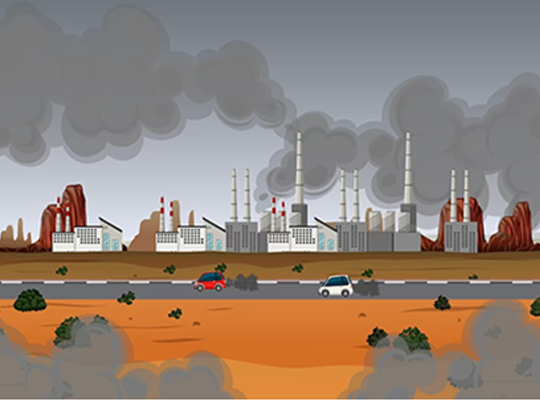The fossilised archive
It feels like we have been employing and deploying fossil fuels for eternity, we use them for almost everything, to cook food, to run our vehicles, to give us warmth in cold climates. But the outcome has been this ceaseless release of carbon dioxides, monoxides, mercury, nitrogen oxides and soot(dust). The last few decades have exhibited the colossal ramifications of these emissions. Is the future of our descendants so trivial that we are jeopardising it for short-term gains?
We use countless petroleum products on a daily basis, from wood to coal, to crude oil, and derived products like diesel, petrol and bitumen (used in constructing roads). And it is cheap as dirt. It is almost frightening to come to the realisation of how dependent we are on it. Given the scope of our aspirations, we need to start running before learning to walk.
Time and again, climate advocates far and wide have put considerable effort into making the right amount of noise to grab the attention of governments and the international community. The real practical question to ask is, why would oil companies stop their existing well-oiled (pun intended) business that is making them billions of dollars and shift to something else? Additionally, the nonchalantness of politicians worldwide about the seriousness of the issue has flummoxed a lot of people.
India and International, is the situation alike or contrasting?
Coal is the most commonly used fuel in India, 55% of our energy needs are derived from coal. Given our renewable energy ambition, the percentage is quite flabbergasting. Sudden change can jolt the economic system, steady steps are a necessity. Indian officials at the CoP 27 few months back, have urged countries to phase down the usage of fossil fuels.
On the other side of the globe, the European Union plans to halt the sale of fossil fuel cars by 2035. With Europe trying to cut off Russian natural gas and crude oil supply, every nation now is striving to become energy independent. In the USA, Biden has announced plans of eliminating fossil fuel subsidies worth 35 billion dollars.
But not everything in the international circuit is bright and rosy. In 2022, about a trillion dollars were pumped by world leaders into fossil fuel subsidies. For instance, the Australian federal government spent more on fossil fuels subsidies (11.6 billion dollars) than it did on public school subsidies.
What are some possible resolutions?
Oil companies should be incentivized and pushed to take the profits out of their legacy businesses and put in energy sources that have a future scope, rather than being stuck in their old ways, and being infatuated with their existing business model.
One of the most popular socio-psychological concepts is the nudge theory, it basically entails setting up a reward/punishment system to encourage better behaviour. So, to make companies more responsible towards the environment, imposing something like carbon pricing and carbon credits will help in doing so. And in the consumer market, going green should be uncomplicated and undemanding for people like you and me.
Furthermore, on the education front, there need to be more universities with renewable energy degrees, so as to strip off the niche perception of such degrees. The burgeoning job market in the renewable energy sector should be showcased and talked about by the mainstream media, so that on the ground level renewable energy degrees also get the necessary awareness and acceptance.
All things considered, the thing that is crystal clear, the explosion of fields like solar, wind and hydrogen is just the beginning of a monumental shift in how we consume and produce one of the most basic human needs, electricity.
Swati Singh

The Author is the Product Marketing Manager of Oorjan Cleantech (https://www.oorjan.com). Oorjan is one of India’s fastest-growing solar companies, co-founded by IITians and ex-bankers.










